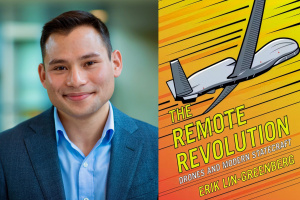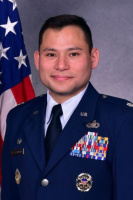
Erik Lin-Greenberg
Associate Professor of Political Science
Emerging technology, crisis escalation, and security strategy.
Biography
Erik Lin-Greenberg is Associate Professor (without tenure) in the Department of Political Science at MIT. His research examines how emerging military technology affects conflict dynamics and the regulation and use of force. His book, The Remote Revolution: Drones and Modern Statecraft (Cornell University Press), explores how remote warfighting technologies are reshaping international politics. In other ongoing projects, he explores how technology and public opinion influence international politics and decisions on the use of force. He is also interested in the international politics of food and the use of wargaming as a tool of scholarly inquiry.
His work has appeared or is forthcoming in academic and policy outlets including Journal of Politics, International Studies Quarterly, Journal of Experimental Political Science, Journal of Conflict Resolution, Security Studies, The Washington Post, Foreign Affairs, and Foreign Policy. He has held fellowships at Dartmouth's College Dickey Center for International Understanding, the University of Pennsylvania's Perry World House, and at Stanford University’s Center for International Security and Cooperation. He received the 2020 Merze Tate Award from the American Political Science Association.
He completed his PhD in Political Science at Columbia University, and an M.S. and B.S. in Political Science from the Massachusetts Institute of Technology. Before entering academia, he was an active duty officer in the United States Air Force and completed assignments in operational units, Headquarters Air Force, and the Joint Staff. He currently commands a squadron in the Air Force Reserve.
News
Biography
Erik Lin-Greenberg is Associate Professor (without tenure) in the Department of Political Science at MIT. His research examines how emerging military technology affects conflict dynamics and the regulation and use of force. His book, The Remote Revolution: Drones and Modern Statecraft (Cornell University Press), explores how remote warfighting technologies are reshaping international politics. In other ongoing projects, he explores how technology and public opinion influence international politics and decisions on the use of force. He is also interested in the international politics of food and the use of wargaming as a tool of scholarly inquiry.
His work has appeared or is forthcoming in academic and policy outlets including Journal of Politics, International Studies Quarterly, Journal of Experimental Political Science, Journal of Conflict Resolution, Security Studies, The Washington Post, Foreign Affairs, and Foreign Policy. He has held fellowships at Dartmouth's College Dickey Center for International Understanding, the University of Pennsylvania's Perry World House, and at Stanford University’s Center for International Security and Cooperation. He received the 2020 Merze Tate Award from the American Political Science Association.
He completed his PhD in Political Science at Columbia University, and an M.S. and B.S. in Political Science from the Massachusetts Institute of Technology. Before entering academia, he was an active duty officer in the United States Air Force and completed assignments in operational units, Headquarters Air Force, and the Joint Staff. He currently commands a squadron in the Air Force Reserve.





